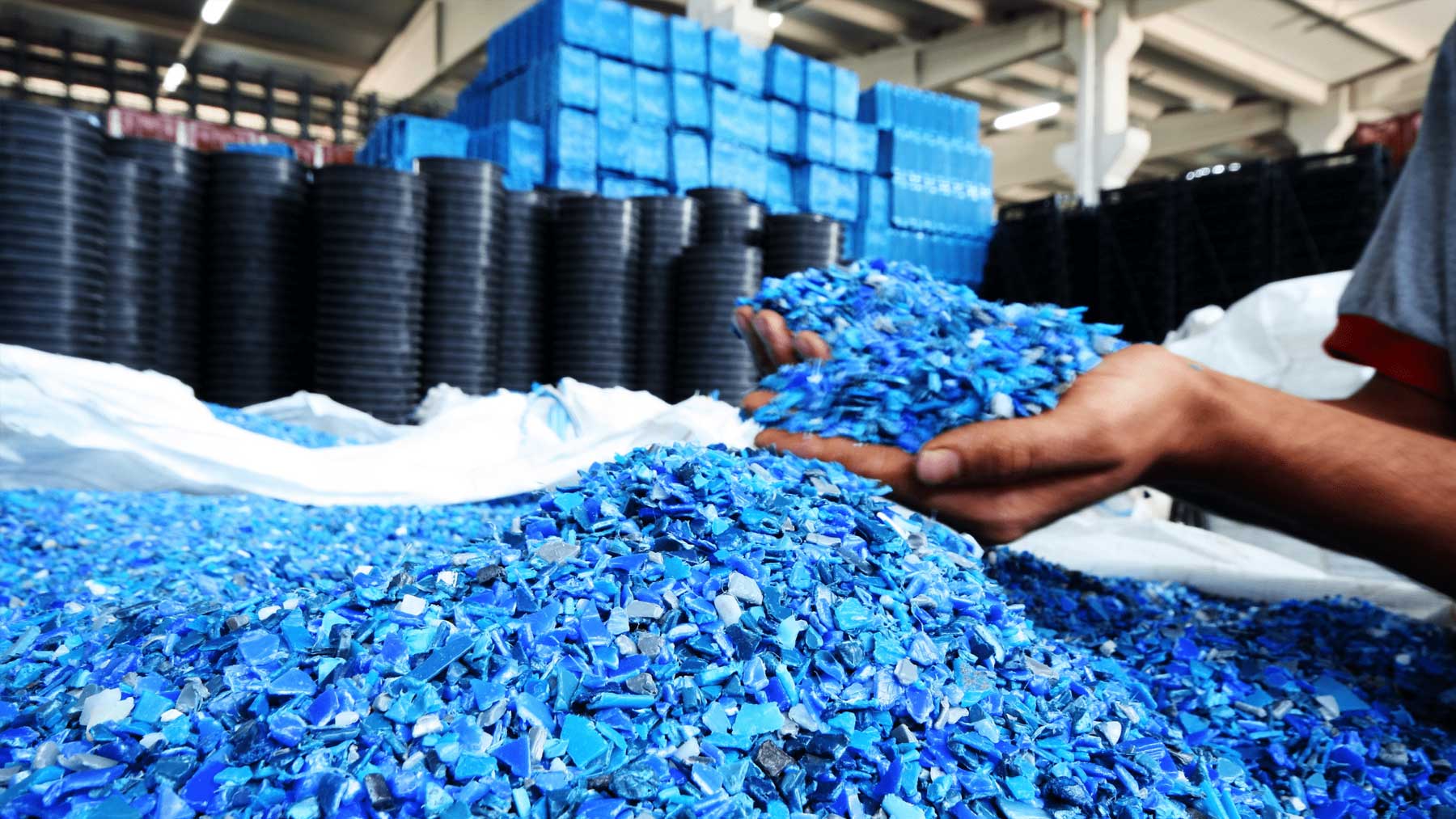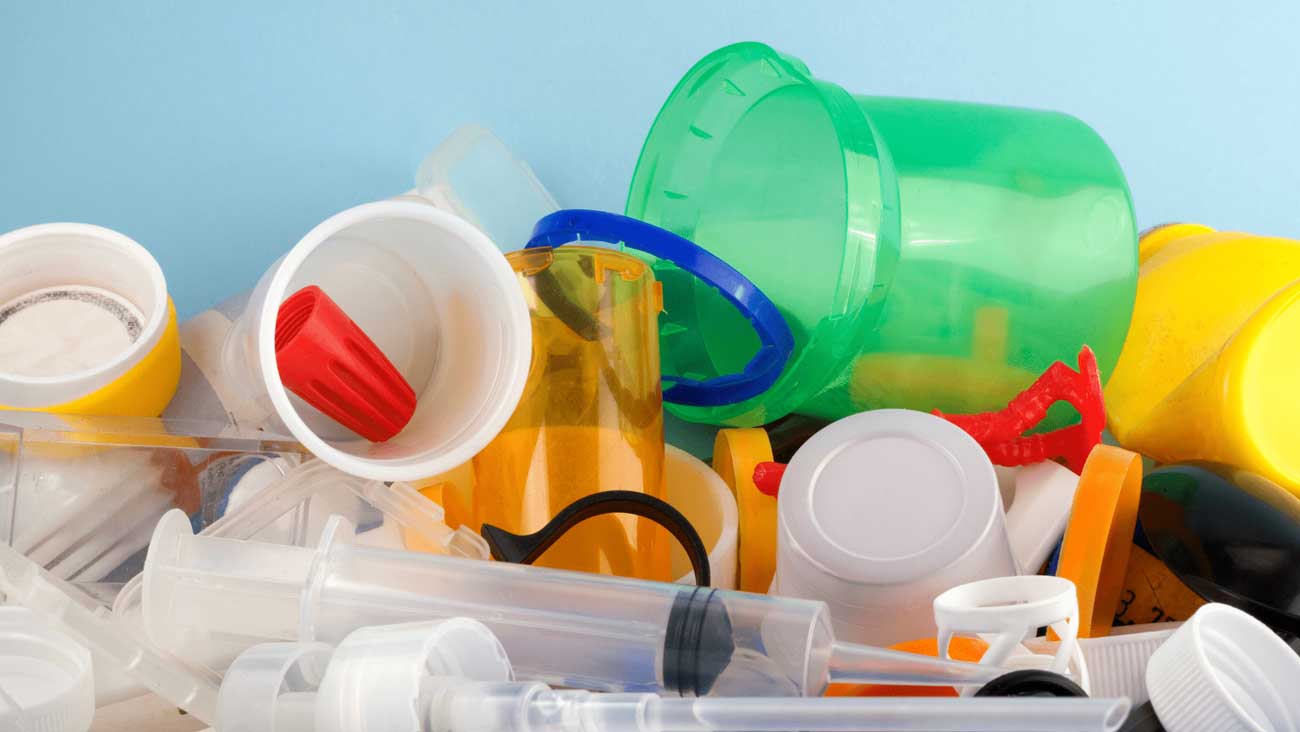Not all plastics are created equal: here’s what you need to know
Wednesday 28th November 2024

Although typically unkind to our environment, plastics have become indispensable in our daily lives and industries, from packaging to construction materials. Having said this, not all plastics are as bad as each other. This is because – when it comes to sustainability, disposal, and recycling – not all plastics are created equal.
Understanding the various types of plastic and their different properties is a great way to help your business embrace greener practices, as well as make informed waste management decisions.
1. Types of plastics: thermoplastics vs. thermosets
Plastics are broadly classified into two categories: thermoplastics and thermosets.
- Thermoplastics are considered recyclable, because they can be melted down, reshaped and reused over and over. These plastic types include common materials like PET (polyethylene terephthalate), which is often used in drinks bottles, and HDPE (high-density polyethylene), often found in milk cartons and detergent bottles. These types of plastics are easier to process through traditional recycling schemes.
- Thermosets are not recyclable, because they harden permanently after being moulded. These types of plastics, such as epoxy resins or bakelite, are durable but less eco-friendly since they can’t be reprocessed.
For businesses aiming to reduce waste, knowing the difference is key. Whenever possible, opting for thermoplastics for items like packaging is a greener choice.

2. Decoding recycling numbers
Ever noticed the numbers on the bottom of plastic containers? These range from 1 to 7 and indicate the type of plastic.
- 1 (PET): Easily recyclable, used in water bottles and food packaging.
- 2 (HDPE): Common in cleaning product bottles, also widely recyclable.
- 3 (PVC): Found in pipes and vinyl flooring but harder to recycle due to its chemical additives.
- 4 (LDPE): Used in carrier bags and packaging film, recyclable in some facilities.
- 5 (PP): Found in yoghurt pots and bottle caps; recycling options are improving.
- 6 (PS or Polystyrene): Typically used in disposable cups and takeaway containers, not easily recyclable.
- 7 (Other): Mixed plastics or bioplastics, often non-recyclable with traditional methods.
3. Biodegradable and compostable plastics: a solution or a challenge?
There’s growing interest in biodegradable and compostable plastics as alternatives to traditional materials. However, these have limitations:
- Biodegradable plastics break down under certain conditions but can still leave microplastics behind.
- Compostable plastics require specific industrial facilities to decompose fully, which are not widely available. Mixing these plastics with regular recycling streams can also lead to contamination, complicating waste processing.
Businesses should weigh the pros and cons before switching to these materials. Ensure clear labelling to prevent misuse by consumers.
4. The problem of contamination
One of the biggest challenges in recycling plastics is contamination. When plastics are mixed with other non-recyclable materials, or food and waste oil, entire batches can be rejected, and therefore need to be sent to landfill sites. This highlights the importance of proper sorting at the source. Businesses can implement waste separation systems on-site to ensure plastics are clean and sorted before collection.
5. Innovations in plastic recycling
As advancements in waste management technologies continue, we are seeing new ways to tackle previously unrecyclable plastics.
- Chemical recycling breaks down plastics into their base molecules, allowing them to be recycled and rebuilt as new materials. This is especially useful for mixed or contaminated plastics.
- Plastic-to-fuel technology converts waste plastics into usable energy, reducing reliance on fossil fuels.
- Automation in sorting uses AI and robotics to identify and separate plastics more effectively, increasing recycling efficiency.
What does this mean for your business?
By understanding the complexities of various plastics, businesses can make more sustainable choices. By switching to recyclable plastics, reducing the use of single-use items, and educating staff on proper waste sorting, businesses can make a significant difference to the wider effort of building a sustainable future.
Get in touch with Everflow today
Talk to Everflow! Partnering with waste management companies that offer tailored recycling solutions can ensure your plastic waste is processed responsibly. Contact Everflow today to find out more.